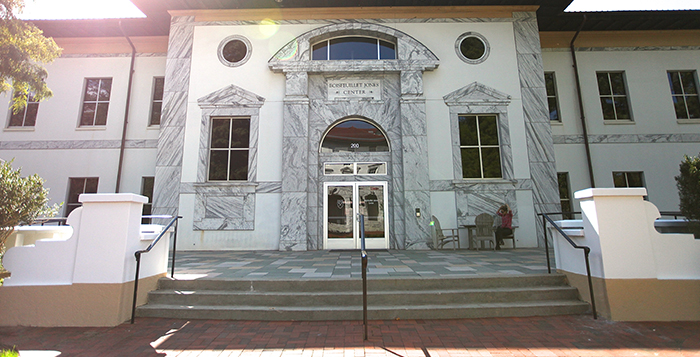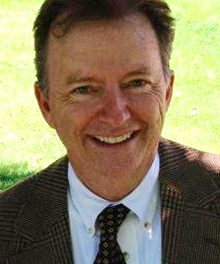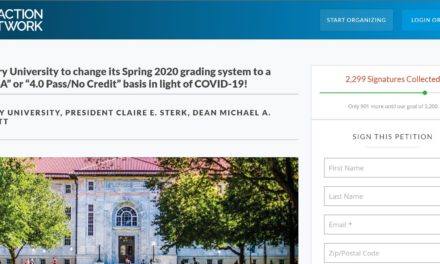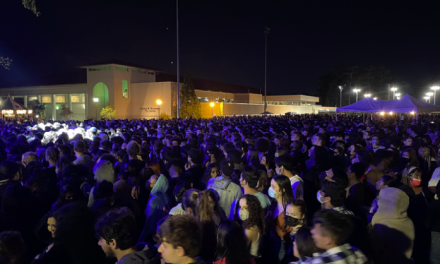After a fully funded graduate education at the University of St. Andrews in Scotland was postponed due to the pandemic, David Kulp’s (20C) highly organized post-graduation plans dissipated into an 11-month void, partly filled by a cross-country road trip with his younger brother.
“I was supposed to be home, take the MCAT and then leave for Scotland as a Bobby Jones Scholar,” Kulp said. “But the program was postponed and that left … a very awkward 11 months to try to figure out post-graduation plans, which was and continues to be challenging.”
The shrinking workforce and stay-at-home orders have toughened the Class of 2020. In search of employment or graduate school opportunities, many have turned to the University’s career resources.
Executive Director of the Emory Career Center Paul Fowler noted that in fall 2020, the center conducted 1,207 one-on-one appointments with recent graduates and students, a 16% increase from the previous year.
“COVID-19 contributed to the increase in number of students we were working with mainly because we saw more May 2020 alums than what we would see in any other year,” Fowler explained. “These were students in somewhat of a panic mode because some had already found apartments and put deposits down … because they knew in January [2020] that’s where they would be in the summer.”
Normally, the Career Center gathers data about the career status of recent graduates three months after commencement. Typically, over 90% of graduates are “resolved,” meaning they have a definitive employment opportunity or graduate school acceptance.
Due to the pandemic, however, the Career Center has only collected data on about half of May 2020 graduates.
Fowler explained that out of the remaining graduates, he estimates that 60% were probably still searching for jobs at the end of the summer, 20% likely “lost an opportunity that we just haven’t updated where they’re at” and 20% are unknown.
Between April 2020 and the start of the summer, Fowler said 10% of full-time positions were canceled and 50% of internships were nixed. Most of the recent graduates seeking help already had strong resumes or had a previous job offer canceled, so he mainly assisted with job searches.
More students and recent graduates also turned to the Emory Alumni Association for assistance in their employment endeavors.
Director of Alumni Engagement Sarah Baker Coombs (20B) said user profiles on Emory Connects, a platform that provides alumni networking services and job postings, increased significantly during the pandemic.
“When there are limited jobs, you’re going to want any advantage to the competition,” Baker said. “Having an Emory network is definitely an advantage because you can get your foot in the door easily through that alumni connection.”
The Alumni Association also launched a platform in fall 2020 called “Ask an Emory Alum,” where students and recent graduates can submit a question that will be directed to a relevant alumni to answer. There have been over 120 interactions on the platform since its launch.
“We wanted to have a way for people … to get advice when they didn’t know where to go,” Baker said. “There’s definitely more of that moving into this uncertain job market since everyone needs more advice.”
The U.S. economy has been in turmoil since COVID-19 first began to spread in March. After businesses temporarily closed and states implemented stay-at-home orders last spring, company revenues plunged while unemployment skyrocketed to 14.7% in April.
“The rise in unemployment came from the need to stop spending on services due to the pandemic rather than a fall in demand in general,” Associate Professor of Economics Leonard Carlson said. “Unemployment has risen most among people who were in jobs where there was contact with the public and jobs that depend on people going to work.”
Carlson emphasized the importance of recent graduates’ efforts in finding a job, noting initial unemployment can cause complications later in life.
“In the 2007-8 recession, people had a hard time getting a first job, and that can have lingering consequences in their later careers since the first job may shape future jobs and the wages,” Carlson said.
Of the 581 May 2020 graduates the Career Center collected data from, 46% are continuing their education, up from 30% of May 2019 graduates. With more uncertain job prospects during the pandemic, “graduate school became an option for a lot of students,” Fowler noted.
Of the nearly 43% of surveyed graduates marked as employed, nearly half indicated the pandemic altered their employment plans.
A delayed work start date was the most common change, affecting half of the group. Over 25% indicated that their work opportunity was either canceled or rescinded.
Fowler said that a delayed start is typically an anomaly, but the pandemic impelled many May graduates to decide whether they should stick with the delayed start, which could be months long, or back out and find a possibly worse job without a delayed start.

Boisfeuillet Jones Center, where the Emory Career Center is located. Photo by Jason Oh.
2020 Graduates’ Post-Graduation Experience
December 2020 graduate Drumil Zaveri (20C) said the pandemic is still affecting employment opportunities for the most recent University graduates.
As an international student from India, Zaveri said his main goal after graduation was to find a job in the U.S. — a task made more challenging by the pandemic.
“I did an interview with this company, and they had mentioned they were planning on hiring more employees, but because of COVID-19 and the way that it affected their business, that consequently affected my application,” Zaveri said.
Zaveri also finds virtual interviews to be disadvantageous and negatively impacts how interviewers judge him.
“I feel that I do much better with … interviews in person,” Zaveri said. “I feel much more confident, and when directly in front of another person, I can feed off of their energy.”
Aside from the pandemic derailing his post-graduation employment, Kulp’s plans to earn a master’s degree in Scotland this year, work in the digital health field next year and then attend medical school in 2022 were delayed. Kulp said altering this sequence was particularly frustrating at first because he’s a very plan-oriented person.
“This whole situation changed my mindset around planning because it’s impossible to plan what the next 24 hours are going to look like,” Kulp explained.
With the resurgence of COVID-19 hampering economic prosperity, current students are apprehensive about their employment prospects.
Fowler noted that students are more anxious and concerned about their future career opportunities this year, with 35 students scheduling appointments with a career service staff member between Dec. 24 and Jan. 4 alone. Over 40 students signed up for a three-hour winter break class on either internship searches or full-time job essential information, which Fowler equates to over 100 individual appointments time-wise.
However, Career Center staff are not worried about post-graduate employment opportunities, even during the economic downturn. Fowler said that since July 2020, 1,900 internships, 1,600 full-time jobs and 190 fellowship applications were posted on Handshake, making him “optimistic about the opportunities for students this summer and for those graduating this spring.”
“That’s not all the jobs in the world,” Fowler added. “Those are opportunities that employers have specifically chosen for Emory and that we approved.”
Unlike previous economic downturns, Carlson said the economy is not significantly impairing the financial system or investment opportunities.
“Unlike 2007-2008 or 1929-1933, there has not been a collapse of the financial system that wiped out wealth and made it hard for investment to occur,” Carlson explained. “This suggests that the recovery might be quicker than those two events.”
Editor-in-Chief | Matthew Chupack (he/him, 24C) is from Northbrook, Illinois, majoring in sociology & religion and minoring in community building & social change on a pre-law track. Outside of the Wheel, Chupack serves on the Emory College Honor Council, is vice president of Behind the Glass: Immigration Reflections, Treasurer of Omicron Delta Kappa leadership honor society and an RA in Dobbs Hall. In his free time, he enjoys trying new restaurants around Atlanta, catching up on pop culture news and listening to country music.






